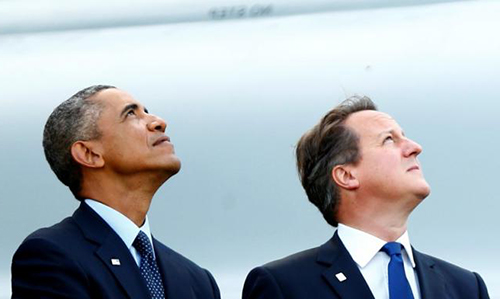'Brexit' threatens to undermine U.S.-Britain special relationship

WASHINGTON – Britain’s decision to quit the European Union could send damaging shockwaves through the bedrock Anglo-American “special relationship,” raising questions about London’s willingness and ability to back US-led efforts in global crises ranging from the Middle East to Ukraine.
The loss of the strongest pro-US voice within the 28-nation bloc, as a result of the “Brexit” referendum, threatens to weaken Washington’s influence in European policymaking and embolden Russian President Vladimir Putin to further challenge the West, analysts and former diplomats say.
The British referendum on Thursday, widely seen as reflecting an increasingly nationalistic and inward-looking public, also risks the splintering of the United Kingdom itself, which could further reduce its role and stature in world affairs.
Britain's departure -- which is not immediate and must be negotiated with the EU -- could present the next US president with a decision on whether to turn to other key European partners like Germany and France, essentially downgrading a special US bond with London forged in World War Two.
Ivo Daalder, a former US ambassador to NATO and the president of the Chicago Council on Global Affairs, said Britain’s ability to press its views and policy preferences with its European allies and within NATO, where it provided strong political backing to the United States, will be diminished.
“You clearly have a much weaker Britain whose sway in European capitals is lessened by the vote,” Daalder said. As a result, he said, the United States likely will have to work harder to maintain trans-Atlantic and European unity.
Anything that divides Europe, he added, “is a win for Russia because that has been a policy of Putin and of Russia.”
A US intelligence official, speaking on condition of anonymity, said: "This is certain to encourage the Russians to continue and probably intensify their campaign of supporting far-right nationalist movements in Western and Eastern Europe as part of their effort to neuter NATO.”
Phil Gordon, a former senior foreign policy adviser to Obama, expressed concern that Europe will become inwardly focused on Britain’s departure and independence movements on the continent, leaving the United States to shoulder more of the international burden.
“The more time it spends on doing that, the more resources it spends on coping with the consequences of that, the less time and money and political capital it is going to have to help us with global challenges,” he said.







